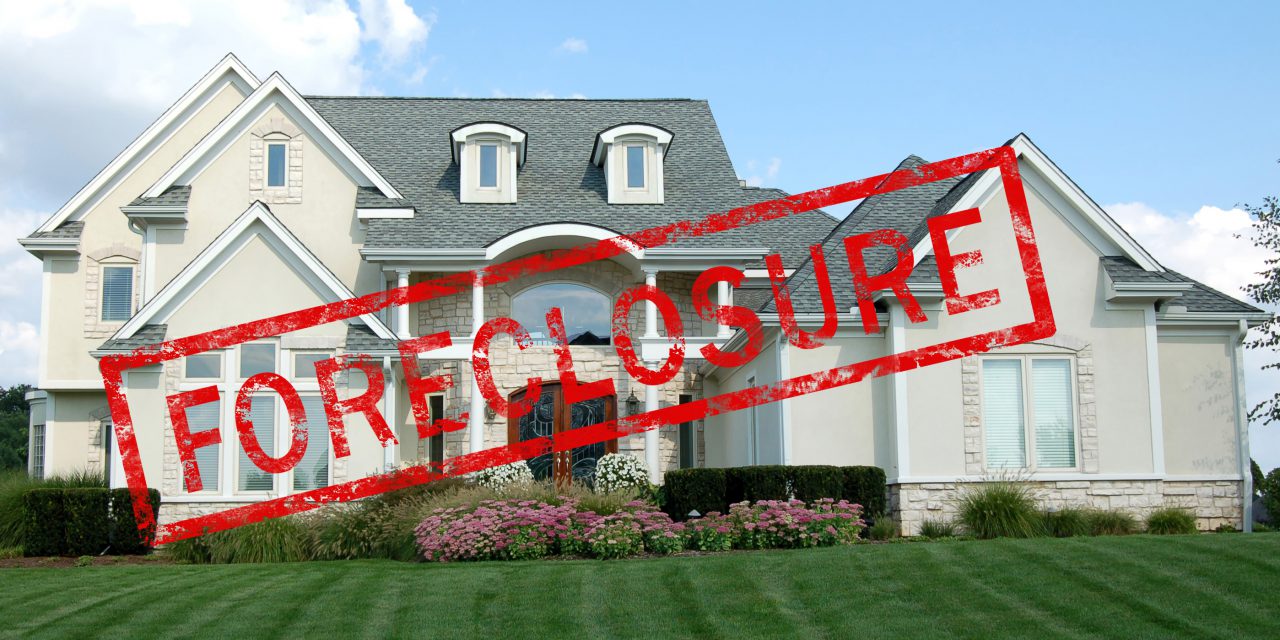Distinguish between recourse and nonrecourse mortgage debt to determine the remedies available to homeowners and lenders in the event a homeowner defaults.
A homeowner defaults
A buyer takes out a mortgage to fund the purchase of a home for their principal residence. Several years later, an economic downturn causes the home’s fair market value (FMV) to drop and the homeowner to default on the mortgage.
Eventually, the mortgage holder holds a trustee’s foreclosure sale of the property to recover the unpaid mortgage debt. However, the home’s FMV at the time of the foreclosure sale is insufficient to cover the total mortgage debt owed by the homeowner.
Is the mortgage holder able to pursue collection from the homeowner for recovery of the remaining unpaid mortgage debt following the foreclosure sale?
No! The mortgage holder is not able to recover the remaining debt – the loss – from the foreclosed homeowner. The homeowner’s mortgage was purchase-assist financing which funded the purchase price on a one-to-four unit property they occupied. Thus, the mortgage is nonrecourse debt and the lender must settle for what they received at the foreclosure sale, the product of California’s anti-deficiency law. [Calif. Code of Civil Procedure §580b]
California anti-deficiency law
A mortgage holder’s right to pursue a property owner for mortgage debt unsatisfied by a foreclosure sale of the home depends on whether the mortgage is recourse or nonrecourse debt under California anti-deficiency law and what type of foreclosure sale was held – a trustee’s foreclosure sale or judicial foreclosure sale.
However, anti-deficiency law prevents mortgage lenders holding nonrecourse debt from suing homeowners and collecting the balance remaining unpaid on their mortgage after either a trustee’s or judicial foreclosure sale by barring a money judgment.
Nonrecourse debt is classified as purchase-money debt, including:
- purchase-assist financing on one-to-four unit residential property which the buyer occupies; and
- carryback debt (seller financing) when secured solely by the property sold. [CCP §580b]
California anti-deficiency laws shield homeowners with nonrecourse debt from liability after either a judicial or nonjudicial foreclosure (also called a trustee’s sale).
Exceptions to nonrecourse debt
Despite California anti-deficiency law and due to federal preemption, nonrecourse mortgages insured by the Federal Housing Administration (FHA) or the Department of Veterans Affairs (VA) are subject to government recovery of these unpaid mortgage debts. Thus, government-insured mortgage debts are not controlled by state nonrecourse debt protections. However, the FHA and VA rarely exercise this right to recover.
Additionally, when on a foreclosure a mortgage holder loses money caused by a lowering of the property’s value due to the homeowner’s bad-faith neglect, called waste, they may collect the waste-related loss from the homeowner. Waste needs to be malicious or excessively damaging to the property to be considered in bad faith, as opposed to natural deterioration of the property’s value over time. The lender holding nonrecourse mortgage debt may only recover the devaluation to the property brought on by bad-faith waste, and then only when the lender underbids to take a loss on the foreclosure sale. [Cornelison v. Kornbluth (1975) 15 CA3d 590]
Recourse: when a mortgage holder can recover their loss
Now, consider a borrower who obtains a mortgage to fund the purchase price paid to acquire a business or investment property, secured by any type of real estate. When the owner defaults, the mortgage holder serves the proper notices and initiates a judicial foreclosure action to sell the encumbered property. Here, the mortgage debt is classified as recourse debt — the mortgage holder can obtain a money judgment for the difference between the total mortgage debt and the FMV of the property on the date of the judicial foreclosure sale, called a deficiency judgment. [CCP §580a]
Recourse debt is any mortgage debt not classified as nonrecourse, such as business- or investment-purpose mortgages.
Further, mortgage holders may only recover losses on recourse debt through judicial foreclosure, and only when:
- the property’s FMV at the time of the judicial sale is less than the outstanding debt, as determined by a court appraisal; and
- the mortgage holder underbids – makes less than a full credit bid – at the judicial foreclosure sale. [CCP §580a]
Second mortgages and refinances
California anti-deficiency law does not specify whether purchase-assist mortgages for second homes receive nonrecourse debt protections. However, nonrecourse debts require acquisition of a one-to-four unit residential property with the intent of the buyer to occupy it — which applies to second homes as well. Nothing in the code explicitly states the residence has to be a primary residence or that an owner cannot purchase more than one residence to occupy.
Second mortgages are nonrecourse debt when they provide purchase-assist financing to fund the price paid to purchase a home the buyer will occupy. This includes home equity lines of credit (HELOCs) to the extent they are used for purchase, construction or remodels of the same one-to-four unit dwelling by which they are secured. [CCP §580b; Bank of America v. Graves (1996) 51 CA4th 607]
Refinances are also considered nonrecourse debts when they are used to pay off the owner’s existing purchase-money mortgage. This includes loan modifications. However, any advance of additional principal (as with a cash-out refinance) or fees involved in the refinance or modification, other than the amount of the remaining original mortgage debt, are recourse debt. [CCP §580b]
Additional legal protections against deficiency judgments
A homeowner can escape from their negative equity home and their mortgage holder’s ability to collect other than through foreclosure by entering into a short sale approved by the lender for the satisfaction of a nonrecourse or recourse mortgage.
A short sale occurs when a mortgage holder agrees to accept the net proceeds from the sale of the secured property as consideration for reconveyance of the trust deed. The short sale agreement allows the owner to close the sale of their home when the net sales proceeds are less than the total debt owed. The mortgage holder’s acceptance of the discounted payoff, called a short pay, prohibits them from coming after the homeowner for the remaining unpaid debt, regardless of whether the debt is recourse or nonrecourse. [CCP §580e]
The catch with the short sale when a recourse mortgage is involved is getting the mortgage holder to agree; the homeowner cannot close a short sale and satisfy their debt unless their mortgage holder fully cooperates.
Tax-wise, homeowners with forgiven nonrecourse mortgage debt in California are shielded from the forgiven debt being taxed as income. Also, the federal Mortgage Forgiveness Debt Relief Act (MFDRA), which is up for extension again, prevents taxation of all mortgage debt forgiveness on qualified principal residences granted through 2014. If extended, the MFDRA will prevent taxation on mortgage debts forgiven before January 1, 2017. The MFDRA’s protection is critical only for California homeowners with recourse debts.
Stay up-to-date with California mortgage law by visiting first tuesday’s Legislative Gossip page, updated monthly with new and pending legislation. Check out SB 907 and AB 2234, currently pending, for updates on discharge of indebtedness on forgiven recourse debts.















While there is a lot of good information here, there are significant errors and oversights. All real estate-secured loans in CA start out as “non-recourse”, in the sense that the lender cannot bring a personal suit against the borrower, at the risk of losing the security and even the debt [Wozab v. Sec. Pacific]. However, if a judicial foreclosure eliminates the security, it MAY be possible to sue the borrower for a deficiency. But note that if the lender forecloses in a trustee sale, a deficiency judgment is barred by CCP 580d, regardless of whether the loan was for a purchase of a primary residence.
The protection of CCP 580b has recently been clarified by amendment to apply to refinances of qualifying purchase financing. In addition, case law will often treat “piggyback” 1st/2d combo loans as a single loan for CCP 580d.
Judicial foreclosure of homes in CA is extremely rare. Aside from much longer times and greater expense, judicial foreclosure may activate a statutory right of redemption, rendering the home effectively unmarketable for one year after foreclosure. Moreover, in a judicial foreclosure the borrower has numerous rights and defenses that are not available in a non-judicial [trustee sale] foreclosure. And, as noted, purchase loans for primary residences can never generate deficiency judgments. So the multiple disadvantages make it virtually certain that lenders foreclose non-judicially in CA.